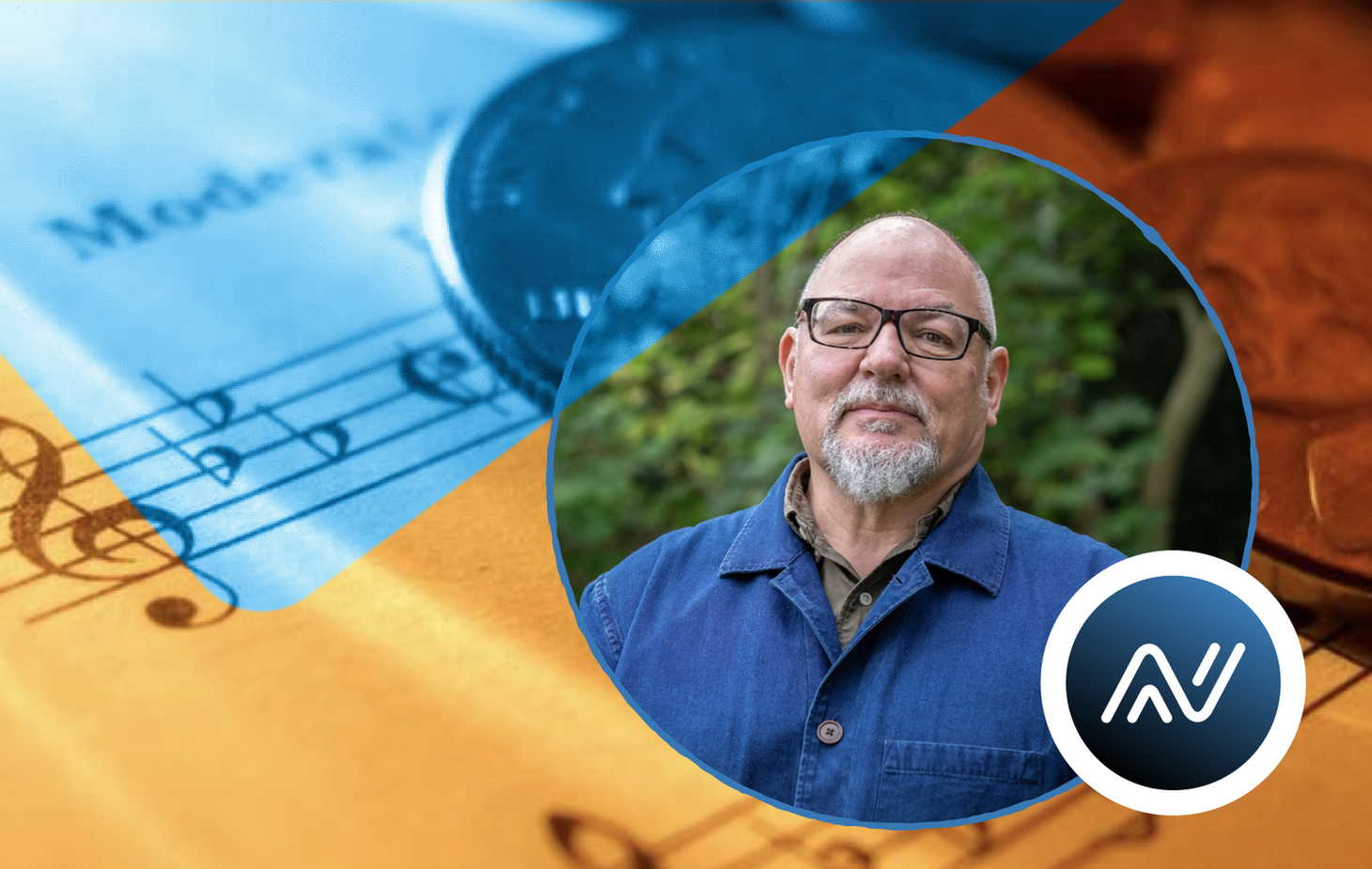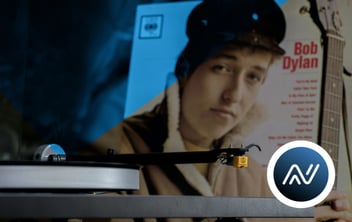“Copyrights are the gem of my business” – A friendly chat with Danish publisher Ole Dreyer
In October we traveled to Copenhagen to give a presentation about alternative funding solutions and ANote Music to the Musikforlæggerne i Danmark (Music Publishers Association, Denmark), a network of publishers with the aim of exchanging knowledge and growing the publisher’s business together. The visit gave us a great opportunity to talk face-to-face with the driving forces behind the Danish publishing business. We sat down with the organisation’s chairperson, Ole Dreyer, who gave his view about the industry at large.
What is the Musikforlæggerne i Danmark?
“We’re the Music Publishers Association of Denmark. We are a network of members who play an active role within the publishing industry, our aim is to exchange knowledge and experiences to further drive the growth of the Danish publishing business.
Through ongoing assistance and events, we support our members to help them achieve better results. During our annual meet-up, we organise a series of workshops and speaker sessions to share best practices and analyse current trends. Key topics at this year’s event were; a Look Into The Future, copyright law, diversity within our industry and funding solutions for publishers.”
How important is financing for publishers?
“It’s essential. Especially for independent publishers, income streams became smaller due to the lack of physical record sales. Getting access to radio and streaming services is hard for them and it seems to be a privilege for the major companies. Indie publishers need constant money to invest in new projects, to develop songwriters or new markets. Korea, Japan, Taiwan, The Netherlands, Belgium and Germany aren’t the most obvious markets for Danish publishers, but they are important markets for us. Exporting music and developing these markets costs money. You need to go there and properly present your music, it’s crucial to create strong local partnerships. That’s where the biggest chunk of the investments goes to.
Besides, not all songwriters you believe in will turn out being successful, some will and in order to boost those successes you need to have the cash available to reinvest in those careers, to further develop in those markets abroad. Once you have one successful songwriter or producer, you’ll need to keep growing and find new talent to develop. A&R is super important and a golden rule in our industry is that you need to make 1 out of 10 artists famous if you want to be successful. It has always been like that, it’s a cruel and a though market. There’s always a big demand for funding.”
What are the biggest obstacles for music publishers to get funding?
“Banks are not eager to invest in the music business, they just don’t understand music as a bankable asset, which sounds strange to me, because nowadays you also see huge investment funds coming in such as Blackstone, this proves that copyrights are interesting investments. These investments are not done pure for the fun of it, these funds certainly did their homework before putting down the money.”
Did the rise of streaming have an impact for the Danish music industry?
“Yes, it took over like a storm, representing almost 97% of the total market consumption today. In Denmark we still have a small amount of vinyl sales happening, but there are almost no CD sales anymore, it all became digital. Streaming made releasing music very easy and a lot of people started publishing their own music. You could say it brought forward some kind of democratization. Back in the days it was very expensive to release music and it was a lot of work to bring anything out, usually you started with a very limited amount of prints. It’s great to see how easy it is nowadays to create and release music. The downside of having so much music out there is how do you get people to listen to your music?
You need to take advantage of playlists and whoever has the greatest artists in their roster, actually controls most of the popular playlists. That’s how the industry always has been with radio or press, and it isn’t so much different with streaming. Whoever had the artists everyone wanted to play or write about, could easier introduce new talent. The major players now have the contacts to the right people at the biggest streaming services, they get to know how the metadata works and what is important to get picked up by the algorithms. You can’t blame the Spotify’s of this world to work in that way, because if someone wants to listen to Adele for example and the song finishes, they will want to listen to 5 other artists that are just as great and of course the big players will have someone ready to present.”
How important is marketing for your music?
“Back in the days it was all about getting airplay on the radio and you had to reach the written press and get friendly with them to get good reviews, nowadays this doesn’t matter as much anymore. Marketing became more important than ever before, but you need ‘smart marketing’. In Denmark there is a huge difference between what people stream and what is being played on the radio. This clashes often during award shows, as they tend to lean more towards what is being played on the radio while people are actually streaming completely other types of music more often. If you go for streaming, your marketing needs to be focused towards getting into the right playlists. If you want to get on the radio, you’ll have to market your music in a whole other way, that’s why I’m saying it is smart marketing that you need. TV is not very relevant for new artists, it’s almost impossible to get new music out there. Of course, you still have live shows, the place where you market new artists. Whatever strategy you follow, you’ll have to have a story. You need to be able to bring across that story to the people, in your music, in your marketing activities and during live performances.
Honestly, I wouldn’t like to be an artist in this day and age because they have to be on social media day in and day out, 24/7. Ten years ago, you could still promote your music and tour for 3 months and go off the radar the rest of the year to work on something new or just to enjoy life. Today it is expected from an artist to post something every single day, to respond and engage with their audiences all the time and it needs to be done in a clever way, otherwise people just forget you or get offended and stop following you. It’s much harder to build a brand as an artist, I don’t think we’ll see big brands such as The Rolling Stones, Madonna or Queen who managed to lasts across multiple generations. Maybe one could say that Lady Gaga has a good brand around herself and knows how to spread her brand across different channels, but even artists like Adele risks to disappear quickly if they don’t keep on producing new singles every now and then. I’m really curious to see in the future how much evergreen music is being produced in this era.”
How do you as a publisher look at a solution like ANote Music?
“You hit the nail on the head by bringing innovation and not disruption. As publishers we don’t want to give away our copyrights if we can prevent it, yet we need funding and ANote gives exactly that opportunity. Like this people invest in the success of a project and of course you and the investors are making money. I don’t mind people investing in my royalty incomes, as long as I can keep my copyrights. It’s something artists and publishers have been building up for ages, you don’t want to give that up so easily, they might be worth your pension fund. You don’t want to give 10 or 20% of your copyrights away to just anyone that throws money on the table. Copyrights are the gem of my business.
I personally think that what ANote does is the right approach and in the right time to do it. You found a smart way and it’s a great opportunity for more people to get into the business who don’t have the money to purchase entire catalogues like the one of Neil Young or Fleetwood Mac. I can see the advantage for both sides of your business.”
In an ideal world, how do you see the publishing world evolve over the next 10 years?
“Publishers are growing into the real cornerstone of the music business. When I was growing up, record labels were the core of the business, they developed artists and managers were always close to where the artists were. Today managers are getting also closer to songwriters, the ones who know how to write great songs. Publishers are actually those who develop songwriters. We are getting better respected as over the past 10 years people have seen what we can mean for songwriters, how we can help exploit new markets and develop a sustainable career, getting them into the right studios and work with the right producers or artists in local markets.
A long-lasting career as an artist became harder to sustain, but songwriters can live on and move from artist to artist, creating a true legacy. Somebody has to write these amazing singles for the artists. A great example is Max Martin, who’s a Swedish songwriter and has been around as a songwriter since long. Besides Paul McCartney he’s the biggest earning songwriter ever, he constantly writes number one hits and he’s been doing so since the late 80s. I don’t think there is any current artist that has been around for that long and remained on top of the charts as he is still doing today. He works together with great publishers that challenge and support him in his line of business.
Who is Ole Dreyer?
Before becoming chairperson at the Danish Music Publishers Association in 2016, Ole was active in the many facets of the music industry. He started in the music industry in 1979 playing in a Punk band and since then worked for record labels with focus on the internationally exploitation of Danish artists. Over the years he has worked as an artist manager and booking agent, owned a night club in Copenhagen (RUST) and managed the biggest Danish rock band besides Volbeat, Dizzy Mizz Lizzy during the 90s. In 1999 he joined the EMI Music Publishing team in Stockholm, becoming Senior Creative Manager in Denmark where he managed to get a lot of internationally success for the Danish artists. Since EMI merged with Sony in 2011 and moved the offices to Stockholm, Ole started his own publishing companies: the Nordic Music Society and Turner Music.
In his role as chairman at Musikforlæggerne i Danmark and being board member at KODA (the Danish collecting society) Ole has been working closely with the government on copyright law, implementing a very strict EU copyright directive and standing up against the big internationally players, advocating for a fair split of earnings for the Danish creators.
Stay tuned!



